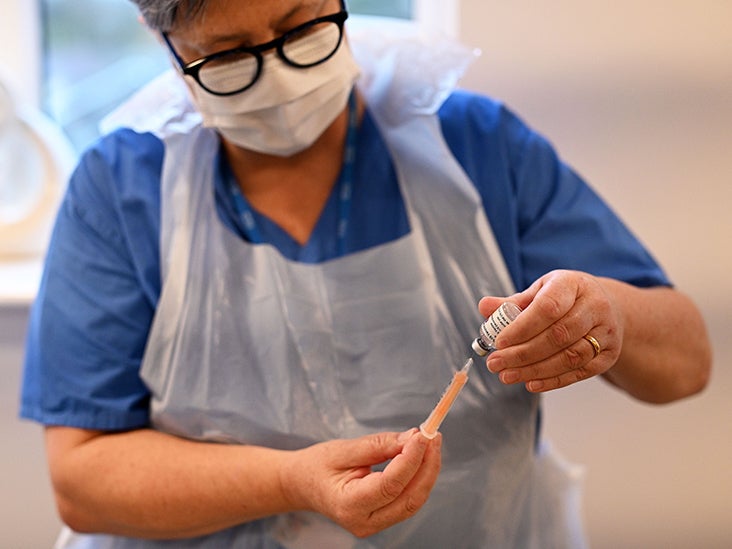Written by Yella Hewings-Martin, Ph.D.
January 15, 2021
Safety and immunogenicity
The ChAdOx1 viral vector in the Oxford-AstraZeneca COVID-19 vaccine has been genetically altered so that it cannot replicate. Therefore, it is unable to cause an adenovirus infection in people who have had the vaccine.
It also cannot cause COVID-19, as it does not carry enough of the SARS-CoV-2 genetic material for our cells to assemble the entire SARS-CoV-2 virus. It only carries the code to make the spike protein.
The vaccine does not cause any permanent changes in our cells, and the genetic code for the spike protein does not become part of our own DNA.
With all viral vectors, one issue to consider is preexisting immunity. If a person encountered the virus that serves as the vector in the past, they may have antibodies to the virus. This means that their body will try to fight and destroy the viral vector, potentially making a vaccine less effective.
The Oxford University research team behind the Oxford-AstraZeneca COVID-19 vaccine previously reported that levels of preexisting antibodies to the ChAdOx1 viral vector were low when they assessed this in samples from adults from the United Kingdom and Gambia.
Writing in Nature Medicine in December 2020, the researchers saw no correlation between immunity to the vector and how well the COVID-19 vaccine worked or whether the volunteers receiving it had side effects in a Phase 1/2 clinical trial.
Other COVID-19 vaccines that use viral vectors include the Russian Sputnik V vaccine and the Janssen single-dose vaccine candidate.








/raw-meat--chicken-breast--pork-chop--and-beef-steak--959363772-5beedae046e0fb0051bd3c7f.jpg)


